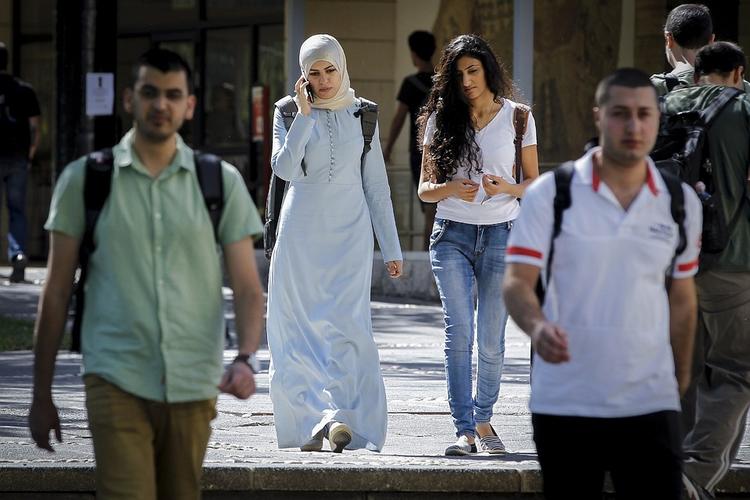By Amelia Smith | –
( Middle East Monitor ) – The women’s rights NGO, Equality Now, has released a policy brief to mark International Day for the Elimination of Violence Against Women on how inadequate justice for women and girls, and a lack of deterrents for perpetrators, has increased violence against women.
According to the World Health Organisation, an estimated 30 per cent of women, worldwide, have experienced physical, sexual intimate partner violence, or non-partner sexual violence in their lifetime, a figure exacerbated by inequality, discrimination and permitted violence found within some laws.
Equality Now’s latest brief highlights sex discrimination in laws in MENA countries, including the highly controversial “marry your rapist”, laws in Libya or Kuwait which have sparked a worldwide outcry. Under this legislation, men can have their rape convictions overturned if they marry the women or girls they have assaulted.
“Equality for women and girls in the law is far from being achieved in the MENA region,” Equality Now’s Regional Representative in the MENA region, Dima Dabbous, told MEMO as the UN Day against Violence against Women launches 16 days of activism to increase awareness of the issue.
“Although there has been some progress, it has been slow and inconsistent. Women and girls continue to face legal discrimination in various ways, including in laws relating to violence.”
“This places them at a greater risk of harm by preventing them from being able to access legal protection, or justice when their rights have been violated. It also fosters a culture of violence against women and girls by enabling offenders to go unpunished.”
In 2012, there were protests in Morocco after a man was allowed to marry a 16-year-old girl he raped. Amina Filali killed herself after the court ordered her marriage and the law was later repealed.
“On a positive note, in recent years, women’s rights activists and lawmakers have successfully campaigned for the repeal of statutory “marry your rapist” loopholes from legal provisions in Jordan, Lebanon, Morocco, Tunisia and Palestine,” adds Dabbous.
A law in Syria that completely exempted men from punishment if they killed their female relatives in the name of “honour” has been repealed.
“I applaud the brave work of women’s rights campaigners throughout the region who are taking a stand against sex discriminatory laws – sometimes at serious personal risk – and are pushing back again regressive forces that seek to remove or undermine legal protections for women and girls,” says Dabbous.
Yet, there is still a long way to go. In Iraq, a husband has the legal right to punish his wife, and for parents to discipline their children, within certain limits prescribed by law or custom.
Iraq’s penal code also allows mitigated sentences for murder with “honourable motives” or if a man catches his wife or another female relative in the act of adultery.
Egypt allows for a lesser punishment for men who kill their wives on discovering them in an act of adultery than for other forms of murder, yet if a woman kills her husband, she will be given the full sentence.
At the same time, women who are victims of domestic violence are not protected because domestic abuse and marital rape are not explicitly criminalised under Egyptian law.
Via Pixabay.
“Equality Now is calling on all governments in the MENA to urgently review and amend their sex discriminatory laws and put in place explicit guarantees of sex equality to ensure protection for women and girls, as outlined in international laws and commitments,” says Dabbous.
“The right to equality and to not be discriminated against on the basis of sex, both in the law itself and in practice in everyday life, is a fundamental human right.”
“Criminalising acts sends society a clear message that it is not acceptable. In this way, the law helps transform social norms and behaviour. Laws also have a preventative effect.”
“Holding offenders to account is an important deterrent, because people are less likely to act when they know there are legal consequences. Having a law in place gives rights and protection to those at risk and provides survivors with a means to access justice. Without the law, there is immunity for perpetrators, which encourages further abuses.”
melia Smith is a writer and journalist based in London who has reported from across the Middle East and North Africa. In 2016 Amelia was a finalist at the Write Stuff writing competition at the London Book Fair. Her first book, “The Arab Spring Five Years On”, was published in 2016 and brings together a collection of authors who analyse the protests and their aftermath half a decade after they flared in the region.
The views expressed in this article belong to the author and do not necessarily reflect the editorial policy of Middle East Monitor or Informed Comment.
This work by Middle East Monitor is licensed under a Creative Commons Attribution-NonCommercial-ShareAlike 4.0 International License.




 © 2025 All Rights Reserved
© 2025 All Rights Reserved